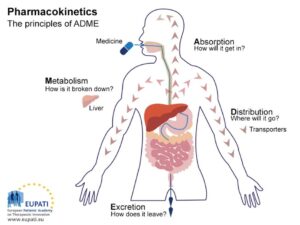Small molecules – overcome the barriers to clinical development
The potential of nanomedicine to provide therapeutic benefits over conventional drug formulations has been proven with a number of drugs on the market. Following the success of DOXIL®, a liposome-based doxorubicin formulation which improves pharmakocinetic profile, DIVERSA have developed a new lipidic nanoemulsion. In this post, we look at how it overcomes the barriers of solubility, permeability and intracellular delivery of small molecules, to help biomedical researchers to reach the preclinical stages. Available in Europe through Tebubio, see how DIVERSA’s new technology can redefine the medicinal chemistry/lead screening workflow.
Thanks to their new patented lipidic nanoemulsion, DIVERSA provides you with an alternative solution to poorly soluble compounds and overcomes the classical barriers (solubility, permeability, delivery) of drug candidate development, thus making it possible for more molecules reach later development stages.
How can it help Med Chem scientists and biomedical researchers?
One of the biggest challenges you may face between the discovery stages and product development of small molecules, is their low solubility. Most of the time, the nature of these new molecules that will potentially be considered drug candidates, is highly lipophilic. Depending on the administration route, lipophilicity can be a problem when considering formulation development, and thus, clinical translation. In this sense, medicinal chemistry becomes a key-point in trying to modulate the lipophilicity without compromising pharmacological activity: introducing polar functional groups or converting these molecules to salts are two strategies widely used.
 Finding the balance
Finding the balance
The equilibrium between lipophilicity and hydrophilicity needed to achieve a good pharmacological effect of a drug will dictate the ADME (Absorption, Distribution, Metabolism and Excretion) process and is, of course, dependent on the administration route.
Preclinical Formulation
The other big branch that comes into play is the preclinical formulation work. By using different formulation strategies (i.e.: solutions, suspensions, amorphous solid dispersions…), it’s possible to enhance the applicability of these early-stage compounds.
Encapsulation of small molecules into nanoparticles is another strategy used when seeking to modulate ADME properties. DIVERSA has developed a DIVTECH solution in this sense: a high-loading technology capable of encapsulating lipophilic small molecules based on the solubility of the drug in the two main excipients of the nanoemulsion.
Discover the DIVERSA technology in more detail
 You can now benefit from this technology with the ready-to-use DIVTECH Small Molecule Kit, and efficiently achieve intracellular delivery of small molecules. Furthermore, the association of a fluorophore to the nanoemulsions to facilitate tracking is also possible with the Fluogreen small molecule kit.
You can now benefit from this technology with the ready-to-use DIVTECH Small Molecule Kit, and efficiently achieve intracellular delivery of small molecules. Furthermore, the association of a fluorophore to the nanoemulsions to facilitate tracking is also possible with the Fluogreen small molecule kit.
Favouring delivery
When considering systemic routes of administration (e.g. injection directly to the blood stream, such as intravenous – i.v. – administration), the lipophilicity of a drug will dictate how the drug is distributed, metabolized, and excreted. In this sense, nanoparticles such as DIVTECH can provide solutions in terms of passive targeting to solid tumours (based on Enhanced Permeation and Retention – EPR – effect), as well as active targeting (i.e. by adding targeting moieties), improving therapeutic outcomes.
When considering other parenteral routes of administration, such as intraperitoneal (i.p.), intramuscular (i.m.), or subcutaneous (s.c.), DIVTECH can also enhance absorption processes by increasing bioavailability (i.e. the percentage of the administered dose that reaches the systemic circulation).
Would you like to improve the solubility and intracellular delivery of your molecule? Speed up the way to preclinical stages?
Try the ready-to-use DIVERSA kits
Acknowledgements
We extend our special thanks to Laura Taina, PhD student at DIVERSA, for writing and sharing this post content.



